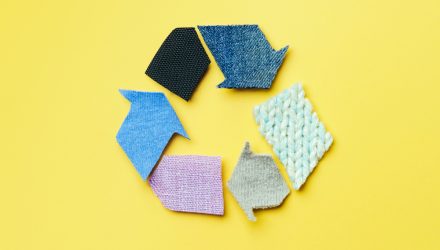With consumers buying more and more clothing, the trend of “fast fashion” is expanding. Fast fashion refers to cheap, stylish, mass-produced clothes that appeal to shoppers because they are affordable and trendy. But because they aren’t built to last and quickly go out of style, these clothes are soon discarded, piling up in landfills.
According to a report from Goldman Sachs, less than 1% of material used in clothing comes from recycled sources. Synthetic fibers used in garments are made by using fossil fuels, and their use in fashion doubled between 2000 and 2020. In 2010, the global apparel industry produced more than 150 billion garments, enough to provide each human on the planet with more than 20 items.
All told, 73% of all clothing produced ends up in landfills or incinerated, and there are few technologies that exist to reverse such trends.
Enter Re:NewCell. The Swedish textiles recycler is working to make fashion circular by transforming textile waste, such as worn-out jeans and production scraps, into biodegradable fibers called “Circulose.” Circulose has a net-negative CO2 impact, reducing water use, land use, waste, plastic pollution, and emissions of both CO2 and other chemicals.
In addition, Re:NewCell has the world’s first industrial-scale recycling plant for cellulosic textiles and is looking to commission the world’s first commercial-scale plant by 2022, with a maximum production capacity of 60,000 tons per year.
Re:NewCell is one of the holdings in the Goldman Sachs Future Planet Equity ETF (GSFP), an actively managed fund of global companies that seek to address environmental problems.
The company represents an example of sustainable consumption, one of the five key themes GSFP currently invests in, along with clean energy, resource efficiency, circular economy, and water sustainability. However, due to its active approach, key themes selection and allocation may significantly change over time.
With more than 7.7 billion people on the planet, all of whom need to eat and wear clothes, and many of whom travel, there’s a growing concern about sustainability. For many, the COVID-19 pandemic shone a light on the need for sustainable consumption. Results of a Boston Consulting Group survey showed that almost all consumers (95%) believed their personal actions could help with environmental issues such as waste reduction, climate change, and other biodiversity issues, with up to 30% saying that their concerns had grown during the pandemic.
For more news, information, and strategy, visit the Future ETFs Channel.

